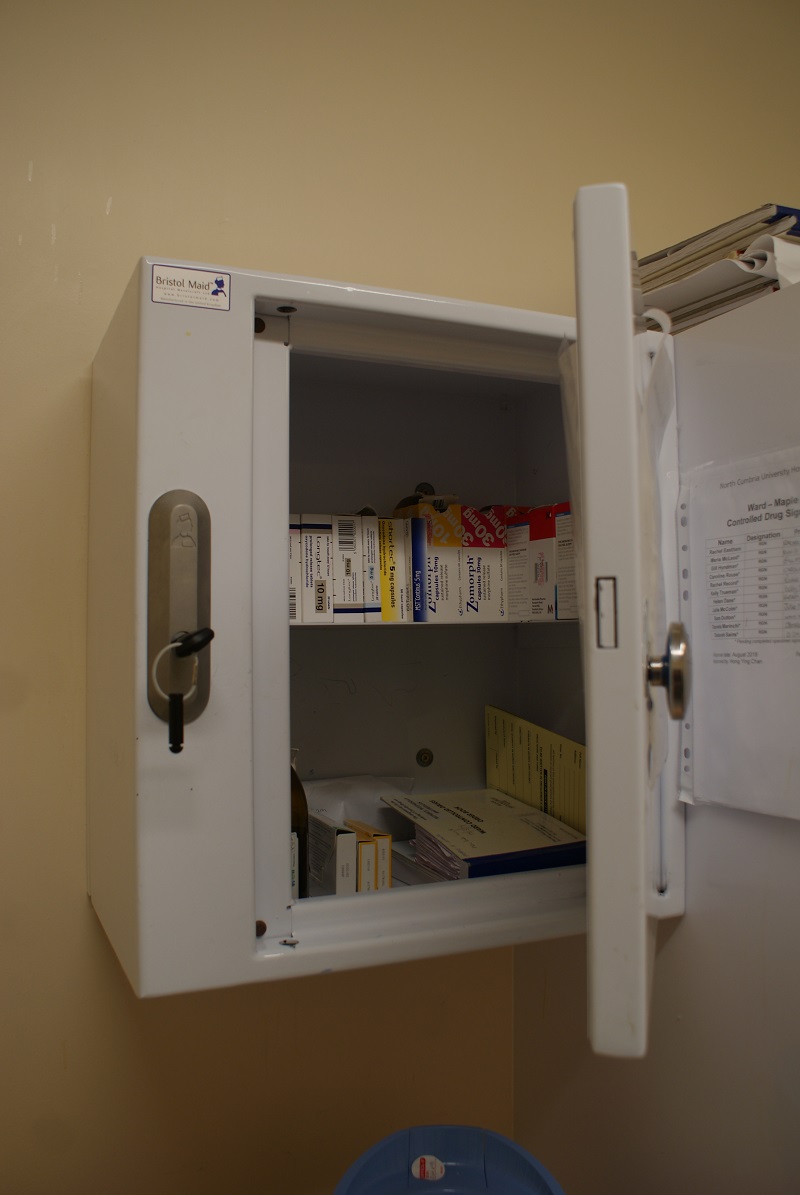Abloy UK has supplied Cumberland Infirmary in Carlisle with PROTEC2 CLIQ and Traka21 key management solutions for drug cabinets, to improve the management of medicines and nursing efficiency.
The trust was looking for a more-secure and robust system for controlling and monitoring access to medicines around the hospital.
Previously, the infirmary used mechanical locks and keys and a paper record was in operation for monitoring purposes .
However, was time consuming for busy ward staff and time could be wasted looking for keys - which posed a risk in emergency situations where access was needed immediately.
A recent security review prompted management to look for a more-secure solution.
The main objective was to ensure the security of medications was robust, and a full audit trail of access to cupboards and drug cabinets was readily available if required.
The Trust trialled a bespoke solution that combined PROTEC2 CLIQ, innovative Traka21 key cabinets, and EL160 lock cases compliant to British Standard EN179.
After a successful trial, the trust commissioned the technology in 22 wards within the hospital, withLockwise Locksmiths undertaking the installation.
The combination of PROTEC2 CLIQ keys and cylinders were easily retrofitted to drug cabinets throughout the hospital, and staff CLIQ keys were housed in Traka21 key cabinets fitted across the wards.
PROTEC2 CLIQ is an easy-to-use access control system based on mechanical high-security disc cylinders combined with highly-encrypted electronic locking and identification.
Power to the lock is provided by the CLIQ key, therefore no batteries or wires are required to either the lock or drug cabinet, making it an ideal retrofit solution - even for applications such as mobile drug trolleys.
The system allows for remote key management, providing comprehensive audit trails on locks and padlocks, and the ability to remove lost or stolen keys from the system, substantially increasing the security of controlled drugs.
PROTEC2 CLIQ was combined with the Traka21 key management system, which provides nurses with access to a single key for the duration of their shift.
By simply entering a PIN code to access a specific key, which they validate using the wall programming unit; they can access every cabinet they’re authorised to open.
Gareth Black, resilience manager at North Cumbria University Hospitals NHS Trust, which runs the hospital, said: “Our focus throughout the process has always been to improve the security of the hospital.

The deployment is estimated to have saved more than 356 nursing hours per week
“We found the system has not only significantly improved the management of medicines, but has improved the efficiency of nurses as they do not have to waste time looking for lost keys.
“The CLIQ system also gave us the ability to monitor access to drug cabinets, and its implementation resulted in a saving of 356 nursing hours per week across the 22 wards. The time saved gives staff the opportunity to provide better care to our patients.”
Rory Grant, regional specification development manager at Abloy UK, added: “UK infrastructure - the healthcare industry in particular - is under constant pressure to deliver cost savings and efficiencies while maintaining a high level of service.
“With this in mind, Abloy is able to create bespoke solutions tailored to the needs of the organisation, in this case securing drug cabinets across a vast number of wards and improving nursing efficiency in the process.”
